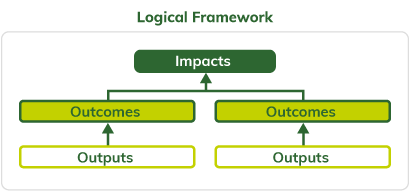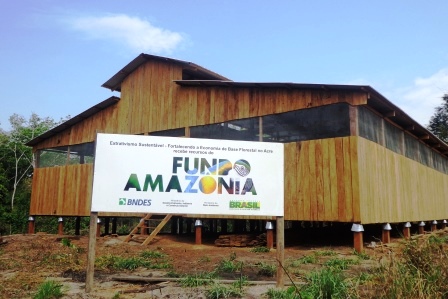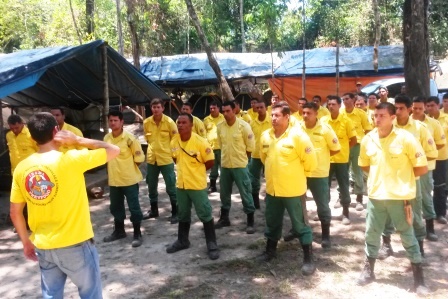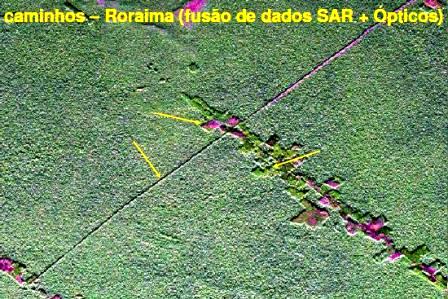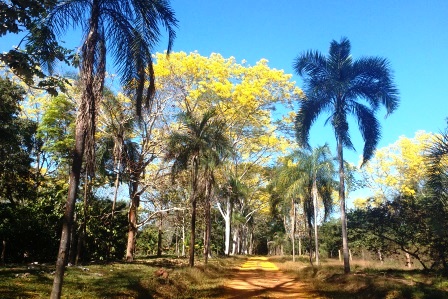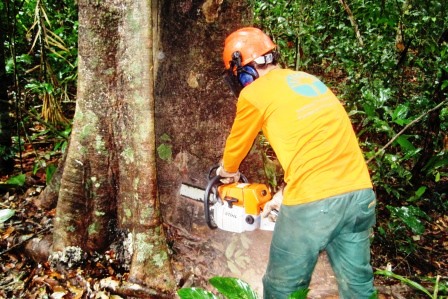ACTIVITIES CONDUCTED
Two field visits were carried to provide the expert technical consultancy in the management and conservation of tracajás (Podocnemis unifilis) and turtles (Podocnemis expansa) that were part of the planned activities for implementing the PGTA of the Vale do Javari TI. Project experts met with Marubo communities on the Ituí River to promote a dialogue between the technical knowledge provided and the traditional knowledge and management practices of the Marubo people.
Other field activities carried out included mapping expeditions for updating ethnomaps, nine to the Vale do Javari TI and four to the Krikati and Governador TIs, as well as six expeditions to Andirá-Marau TI and one to Nova Jacundá TI to collect information on land use, occupation and territorial vulnerabilities.
Two workshops were also held on the systematization and qualification of territorial information, the first with the Krikati and Gavião Pykobjê peoples, and the second with the Guarani of Nova Jacundá.
Field expeditions to the Upper Jaquirana river’s region were carried out, together with the Mayuruna/Matsés people, to visit old capoeiras (old cultivation areas in the forest) of the Matsés people at the margins of the Lobo river Alto Jaquirana and surroundings so that young environmental agents could know these areas and community elders could verify the degree of natural regeneration and whether any changes occurred since their last visit.
Two field expeditions were also carried out to assist in the establishment of fishing agreements and a proposal for the management of fishing resources, in the region of the Middle Javari River and the Lower Curuçá River, with the Kanamari and Mayuruna/Matsés peoples.
The renovation of the headquarters of the Union of Indigenous Peoples of Vale do Javari (Univaja) was completed and two training meetings were held to share traditional knowledge at the Vale do Javari TI.
The implementation of the Timbira PGTA in the Krikati and Governador TIs advanced with the project’s continued support for food production to improve food security, through the strengthening of local family farmers. This second agricultural cycle involved the support for 114 family farms at Krikati TI and other 78 family farms at Governador TI, totaling 192 farms. The Krikati gardens totaled 234 rows planted, representing 70.91 hectares, while the Gavião Pykobjê gardens totaled 256 rows planted, representing 76.87 hectares. All 192 supported gardens, at both TIs, totaled 147.78 hectares planted in this second agricultural cycle.
Monthly visits to Krikati and Gavião villages have ensured a sustained enrichment of the communities’ gardens. An estimated area of 28.87 hectares, comprising 221 gardens in 8 Krikati villages, was enriched with the planting of 4,160 fruit trees. Another 182 gardens in 14 Gavião Pykobjê villages, totaling about 22.75 hectares, were also benefited with the planting of 2,550 banana plants.
Participatory mapping expeditions surveyed and qualified degraded areas to be recovered with native nontimber species in the Krikati and Governador TIs, which were then validated in meetings with chiefs and leaders. Seed collection and workshops on seedling production and nursery structuring and maintenance were also carried out – with the participation of Gavião and Krikati environmental agents and leaders – as preparations for planting expeditions to the forest areas to be recovered.
The training of indigenous environmental agents (AAI) was completed, a crosscutting action involving all project components. A total of seven training workshops on indigenous territorial and environmental management were held with the participation of Krikati, Gavião Pykobjê, Sateré Mawé, Matis, Matsés, Kulina Pano, Kanamari, Marubo and Guarani peoples. Another two training workshops were held with the aim of strengthening indigenous associations in the Vale do Javari region.


